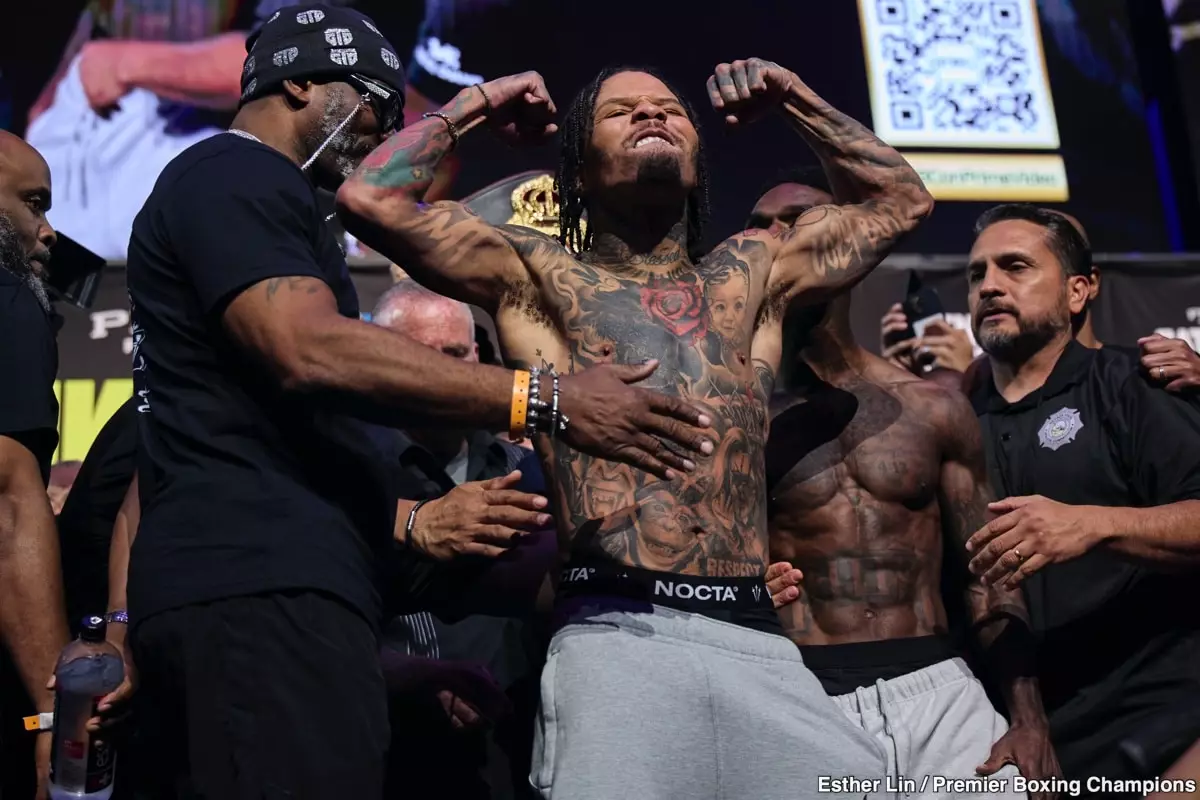The boxing community is buzzing with critiques of Gervonta “Tank” Davis’s upcoming title defense against Lamont Roach this January. Prominent commentator Tim Bradley has openly lambasted Davis for consistently opting for what he refers to as “soft” opponents throughout his 11-year professional boxing career. This is a recognizable trend that has sparked debates on whether Davis can truly be considered an elite fighter or merely a well-packaged product cultivated by clever promotional strategies.
The Illusion of Dominance
Bradley’s assessment of Gervonta Davis paints a rather dire portrait of the boxer’s competitive trajectory. With a record of 30 wins and 28 knockouts, Davis has certainly established himself as an impressive fighter on paper. However, Bradley likens Davis to a “30-year-old prospect” due to the seemingly selective nature of his matchups. The critique here isn’t merely about Davis’s current fight with Roach, but rather a broader indictment of his entire career thus far. By systematically avoiding credible challenges and faced with underwhelming competition, Davis’s record raises questions about the authenticity of his accomplishments.
Matchmaking, as Bradley points out, can create an enticing narrative around a boxer, much like the art of illusion. The showmanship surrounding Tank Davis is well-crafted, making it appear as though he is constantly on an upward trajectory. However, this narrative begins to crumble under the scrutiny of those who understand the intricacies of boxing. The question arises: Is Davis truly as formidable as his record suggests, or is he a product molded by his promoters to appear invincible while selectively handpicking opponents deemed non-threatening?
Bradley has been vocal about missed opportunities during Davis’s career. He calls attention to previous potential matchups against high-caliber opponents such as Vasily Lomachenko and Shakur Stevenson, questioning why those bouts were never pursued when they could have showcased Davis’s skills against top-tier competition. Instead, as Davis waits for an opportunity that could cement his legacy, his choice of opponents continues to suggest a cautious approach and a desire to protect his undefeated status.
When discussing Gervonta Davis, it becomes critical to look at the timeline of his career choices. Bradley argues that the landscape of lightweight boxing has consistently offered viable opportunities for Davis to challenge whoever might be regarded as the best at any given moment. The hesitation displayed by not taking these chances has led to an aura of “protective custody” over Davis’s career, raising eyebrows among fans and boxing insiders alike.
The logic behind this restrained matchmaking cannot be dismissed as mere cynicism by critics, including Bradley. Instead, it reflects a deeper understanding of how fighters can be marketed in a competitive sports landscape. Having been with PBC (Premier Boxing Champions), Davis has benefited from meticulous matchmaking designed to enhance his image without exposing him to potential defeat.
By selecting opponents who pose little risk to his undefeated streak, Davis presents a track record that appeals to less hardcore boxing fans. Many of these supporters may lack an understanding of the varying degrees of boxing talent and remain blissfully ignorant regarding the calculated placement of matchups in the roster.
Bradley’s contention that fans have been “slow on the uptake” in recognizing this pattern calls into question how much transparency exists within the world of boxing. If the general audience continues to celebrate the highlighted wins without examining the level of competition faced, it raises concerns about the sport’s integrity.
The ongoing dialogue regarding Gervonta Davis’s match selection leads to an important understanding of what constitutes legitimacy in the boxing world. As commentators and fans alike call for more integrity, true champions should be defined not merely by their win-loss records but also by their willingness to engage in the tough contests that define boxing greatness.
If Davis wishes to cement his legacy and emerge from Bradley’s criticism, he must begin to seek out challenges that put him against true contenders. Only then can he genuinely earn the respect and recognition he seeks, transitioning from a product of skillful matchmaking into a fighter who has truly earned his accolades through combat with the best in the sport. It’s time for Davis to step out of the shadows of carefully chosen rivals and challenge the elite.

